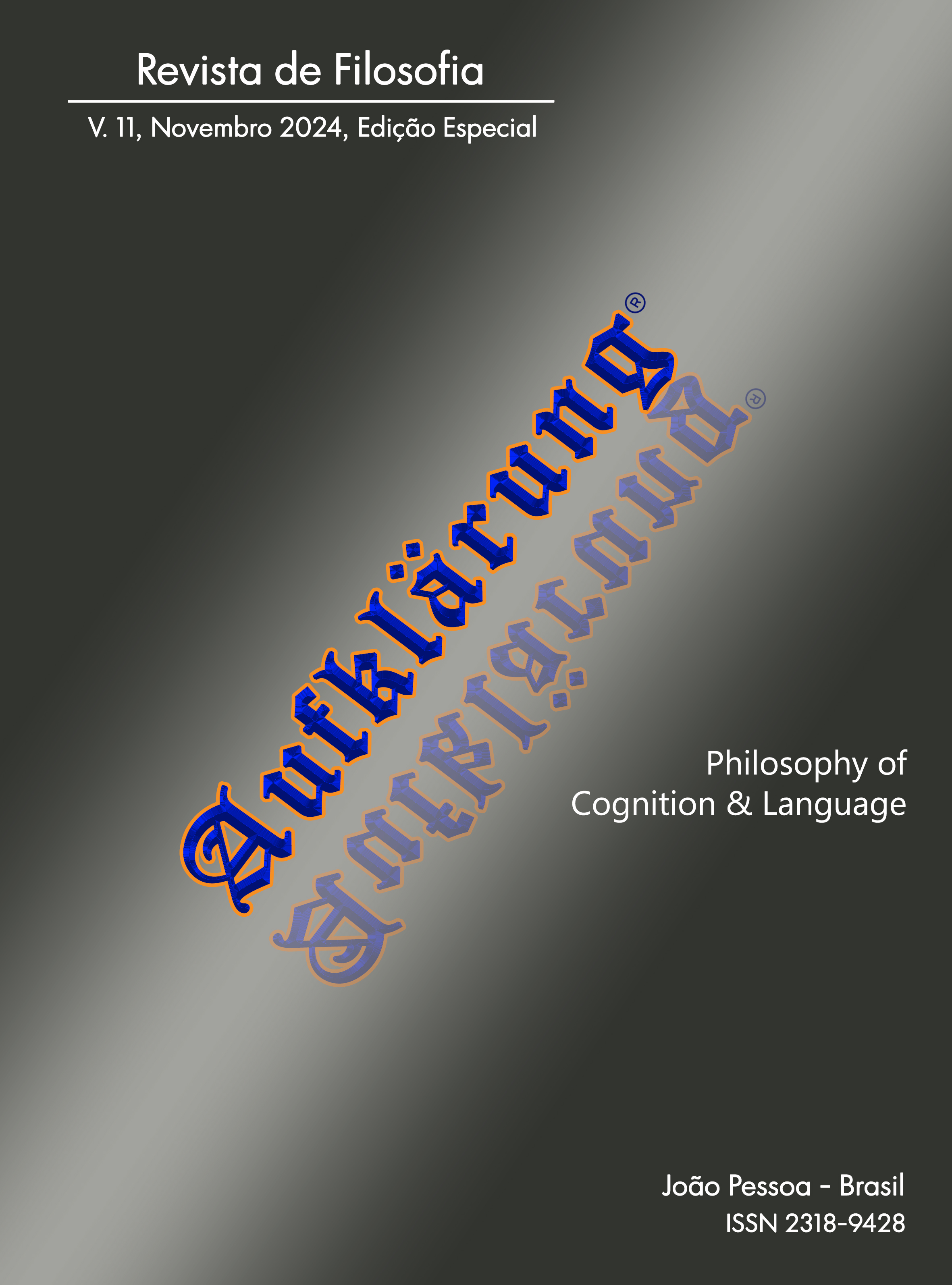On the possession and attribution problems for collective know-how
DOI:
https://doi.org/10.18012/arf.v11iEspecial.69933Palavras-chave:
Know-how, Group know-how, Know-how attributions, Collective states, Non-propositional intentionalityResumo
In this paper, I examine two issues that any account of know-how, but particularly an account of group know-how, needs to deal with: the possession problem, which is the need to explain how a group can be in a state of knowing how to do something, and the attribution problem, which is the need to account for the conditions in which it is admissible to attribute know-how to a group. I argue that (despite some initial appearances) they are independent problems, which is specially important in the context of theories where know-how cannot in general be reduced to proposition-oriented attitudes.
Downloads
Referências
BENGSON, J.; MOFFETT, M. Nonpropositional intellectualism. In: BENGSON, J.; MOFFETT, M. (Eds.) Knowing how.Oxford: Oxford University Press, 2011. p. 161-195.
BIRCH, J. Joint know-how. Philosophical Studies, v. 176, p. 3329-3352, 2019.
BIRD, A. Social knowing: the social sense of 'scientific knowledge'. Philosophical Perspectives, v. 24, p. 23-56, 2010.
CATH, Y. Knowing how without knowing that. In: BENGSON, J.; MOFFETT, M. (Eds.) Knowing how. Oxford: Oxford University Press, 2011. p. 113-135.
DENNETT, D. The unimagined preposterousness of zombies. Journal of Consciousness Studies, v. 2, p. 322-326, 1995.
DI PAOLO, E.; CUFFARI, E.; DE JAEGHER, H. Linguistic bodies: the continuity between life and language. Cambridge, MA: The MIT Press, 2018.
FARKAS, K. Know-how and non-propositional intentionality. In: GRZANKOWSKI A.; MONTAGUE, M. (Eds.) Non-propositional intentionality. New York: Oxford University Press, 2018. p. 95-113.
GRZANKOWSKI, A. Attitudes towards objects. Noûs, v. 48, p. 314-328, 2014.
GRZANKOWSKI, A. Non-propositional contents and how to find them. Journal of Consciousness Studies, v. 25, p. 233-241, 2018.
HABGOOD-COOTE, J. Knowledge-how, abilities, and questions. Australasian Journal of Philosophy, v. 97, p. 86-104, 2019.
HABGOOD-COOTE, J. Collective practical knowledge is a fragmented interrogative capacity. Philosophical Issues, v. 32, p. 180-199, 2022.
HAUGELAND, J. Two dogmas of rationalism. In: ADAMS, Z.; BROWNING, J. (Eds.) Giving a damn: essays in dialogue with John Haugeland. Cambridge, MA: The MIT Press, 2017. p. 293-310.
HAWLEY, K. Success and knowledge-how. American Philosophical Quarterly, v. 40, p. 19-31, 2003.
JENKINS, A.; DODELL-FEDER, D.; SAXE, R.; KNOBE, J. The neural bases of directed and spontaneous mental state attributions to group agents. PLoS ONE, v. 9, e105341, p. 01-11, 2014.
MASTO, M. Knowledge-the and knowledge-wh. American Philosophical Quarterly, v. 53, p. 295-306, 2016.
MENDELOVICI, A. Propositionalism without propositions, Objectualism without objects. In: GRZANKOWSKI A.; MONTAGUE, M. (Eds.) Non-propositional intentionality. New York: Oxford University Press, 2018. p. 214-233.
MÖLDER, B. Mind ascribed: an elaboration and defence of interpretivism. Amsterdam:John Benjamins, 2010.
MORALES CARBONELL, F. Individual and collective know-how are understanding-like. Unpublished manuscript.
MOREIRA DE CARVALHO, E. The shared know-how in Linguistic Bodies. Unisinos Journal of Philosophy, v. 22, p. 94-101, 2021.
PALERMOS, S. O.; TOLLEFSEN, D. P. Group know-how. In: CARTER J. A.; CLARK, A.; KALLESTRUP, J.; PALERMOS, S. O.; PRITCHARD, D. (Eds.) Socially extended epistemology. New York: Oxford University Press, 2018. p. 112-131.
RYLE, G. The concept of mind (60th anniversary Edition). London: Routledge, 2009.
SAINSBURY, M. Attitudes on display. In: GRZANKOWSKI A.; MONTAGUE, M. (Eds.) Non-propositional intentionality. New York: Oxford University Press, 2018. p. 234-258.
STANLEY, J.; WILLIAMSON, T. Knowing how. Journal of Philosophy, v. 98, p. 411–444, 2001.
TOLLEFSEN, D. Groups as agents. New York: Polity, 2015.
WITTGENSTEIN, L. Philosophical investigations (4th edition). London: Wiley-Blackwell, 2009.
Arquivos adicionais
Publicado
Como Citar
Edição
Seção
Licença

Este trabalho está licenciado sob uma licença Creative Commons Attribution 4.0 International License.
Política de Direito Autoral para os itens publicados pela Revista:
1.Esta revista é regida por uma Licença da Creative Commons aplicada a revistas eletrônicas. Esta licença pode ser lida no link a seguir: Creative Commons Attribution 4.0 International (CC BY 4.0).
2.Consonante a essa politica, a revista declara que os autores são os detentores do copyright de seus artigos sem restrição, e podem depositar o pós-print de seus artigos em qualquer repositório ou site.
Política de Direito de Uso dos Metadados para informações contidas nos itens do repositório
1. Qualquer pessoa e/ou empresa pode acessar os metadados dos itens publicados gratuitamente e a qulquer tempo.
2.Os metadados podem ser usados sem licença prévia em qualquer meio, mesmo comercialmente, desde que seja oferecido um link para o OAI Identifier ou para o artigo que ele desceve, sob os termos da licença CC BY aplicada à revista.
Os autores que têm seus trabalhos publicados concordam que com todas as declarações e normas da Revista e assumem inteira responsabilidade pelas informações prestadas e ideias veiculadas em seus artigos, em conformidade com a Política de Boas Práticas da Revista.






































